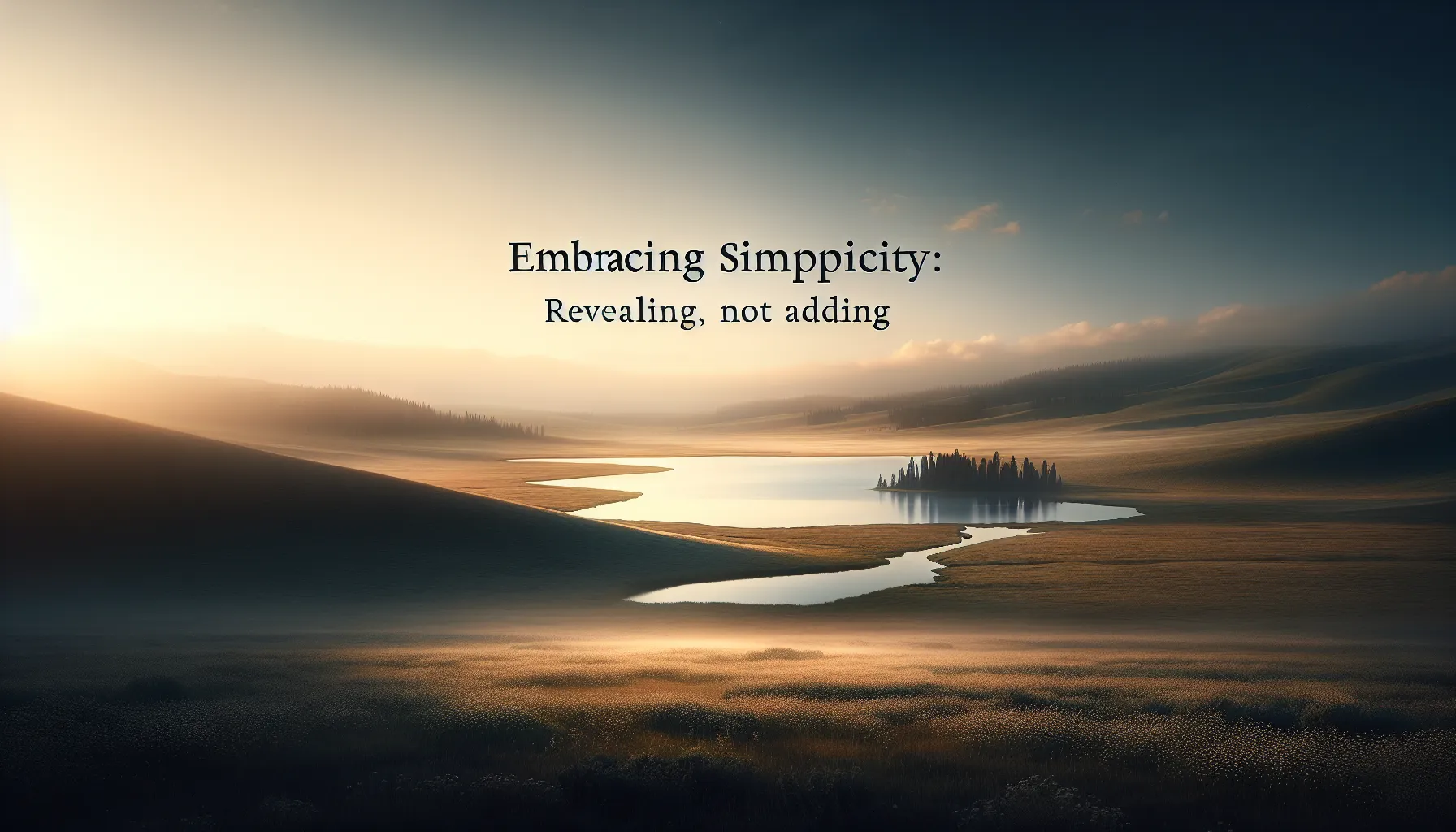If someone told you freedom was waiting in your kitchen, right behind your cravings, would you believe them? I didn’t, until a fateful evening when my empty stomach waged war with my willpower and every clock ticked a bit louder. Somewhere between hunger and habit, I realized—presence can be stronger than the mind. We’re often searching for big answers, but what if the small, quiet moments held the real keys?
Craving Control: Mindfulness Over Mind-Speak
When it comes to cravings, your mind can flip between being your best friend and your loudest enemy. One moment, it’s rationalizing why you deserve a snack; the next, it’s berating you for giving in. This constant chatter is familiar to anyone who’s tried to set boundaries around food, work, or even daily routines. But what if you could step above that noise? That’s where mindfulness meditation and intentional structure come in.
Consider the Shaolin approach: meals are set at 8:00, 13:00, and 18:00. No eating in between. At first glance, this might look like restriction. But in reality, it’s a path to discipline and freedom. You might wonder, “Why not just eat when I’m hungry?” The answer is simple—because that urge is just your mind talking. And as one Shaolin teacher put it,
“There’s something about you which is stronger than the mind. The mind can be your friend, and the mind can be your enemy.”
In the first week of waiting for dinner, the hours crawl by. Hunger feels urgent. Your mind invents reasons to break the rules. But by the fourth day, something shifts. The clock stops mattering more than the meal. You realize you can wait. That’s when real freedom appears—not the freedom to eat whenever you want, but the freedom from being ruled by every passing craving.
This is the heart of mindfulness meditation in daily practice. It’s not about denying yourself or living in constant struggle. Instead, it’s about noticing the cycle: wanting, getting, feeling unsatisfied, and wanting again. When you bring your attention to the present moment, you see these patterns for what they are—just thoughts and feelings, not commands you have to obey.
Research shows that regular mindfulness practice enhances focus, concentration, and cognitive flexibility. This means you’re better able to resist distractions and maintain mental clarity, even when your mind is urging you to give in. Studies also indicate that mindfulness decreases emotional reactivity, so you can disengage from upsetting stimuli and perform better on cognitive tasks. In other words, you gain the power to pause, reflect, and choose your response, rather than react on autopilot.
Structure, like set meal times, isn’t about punishment. It’s a tool that helps you see the mind’s chatter for what it is. When you stop reacting impulsively, discipline transforms into liberation. You’re no longer a slave to every craving or anxious thought. Instead, you’re free to live with intention, savoring the present moment and making choices that align with your values.
So, the next time your mind insists you need something right now, remember: you are stronger than your mind’s chatter. With mindfulness meditation as a daily practice, you can experience the true meaning of discipline and freedom—not just the illusion of choice, but the power to choose what matters most.

Presence Isn’t an Achievement: Undoing, Not Adding
When you think about the present moment, what comes to mind? For many, it’s something to chase—a state you need to reach, a goal to accomplish. This mindset is deeply rooted in Western culture, where achievement and accumulation are seen as the keys to fulfillment. You might feel that to be truly present, you need to master mindfulness meditation, buy the right self-help books, or create the perfect environment. But what if presence isn’t something you achieve at all?
Let’s pause and consider a different perspective. In the West, life often feels like a checklist: get the diploma, land the job, buy the house, and so on. There’s a constant push to do more, have more, and be more. As one teacher wisely put it,
One approach that we have at the moment in this world is in order for us to feel full, we need to attain something. We need to do something.
This “do more” mentality can make it seem like presence is just another item on your to-do list. But the Eastern approach, especially in traditions like Shaolin, flips this idea on its head. Instead of adding, you’re encouraged to undo. Presence isn’t hidden somewhere you need to reach—it’s already here, quietly waiting beneath the noise of your thoughts.
Think of your mind as a clear sky. Thoughts, worries, and regrets are like passing clouds. You don’t need to create the sky; you simply need to let the clouds drift away. The Shaolin view suggests that you don’t have to add anything to experience the present moment. Instead, you remove distractions—mental clutter, anxieties, and the urge to always be productive. When you let go, presence naturally shines through.
This idea isn’t just philosophical; research shows it’s practical, too. Mindfulness meditation—which is all about noticing and letting go of distractions—has been shown to break cycles of negative thought patterns. Studies indicate that practicing mindfulness leads to better emotional regulation, increased self-awareness, and improved mental well-being. By undoing rather than adding, you can lower stress, reduce anxiety, and even decrease cortisol levels, which helps your body relax and your mind find balance.
Living in the present means dropping regrets about the past and worries about the future. It’s not about gathering new comforts or achievements. It’s about noticing what’s already here. The simplicity of this approach can be surprisingly profound. You might find that when you stop striving to be present and just let go, your focus and concentration improve naturally. Mindfulness becomes less about effort and more about ease.
So, next time you catch yourself thinking you need to do more to be present, remember: presence isn’t an achievement. It’s what remains when you stop trying so hard—when you undo, not add. The path to the present moment is about peeling away, not piling on.

Discipline and True Freedom: Why Boundaries Free Your Mind
When you think about freedom, what comes to mind? For many, it’s the idea of doing whatever you want, whenever you want. But if you look closer, true freedom is not about chasing every fleeting desire. It’s about being able to pause, reflect, and choose your actions—rather than being pulled around by habits or temptations. This is where discipline and freedom become deeply connected.
Consider the teachings of Shaolin discipline. At first glance, the strict routines and boundaries might seem confining. But in reality, structure gives you direction. When you set clear boundaries—whether in your daily practice, your relationships, or even your sleep schedule—you create space to notice what’s really driving your choices. Are you acting out of genuine intention, or just reacting to cravings and impulses?
Let’s use a simple example: food. Imagine you could eat anything, at any time, with no restrictions. Would this make you feel liberated? Or would you quickly become restless, maybe even overwhelmed by endless choices? Most people find that a routine—regular meals, mindful eating—brings more peace than unending freedom. The same principle applies to other areas of life. Boundaries, far from limiting you, actually support emotional regulation and a higher quality of life.
Freedom that harms yourself or others isn’t really freedom at all. Take relationships, for example. You might say, “It’s a free world, I can flirt with anyone I want, even if I have a partner at home.” On the surface, that looks like freedom. But where does it lead? Often, it brings suffering—not just to you, but to everyone involved. As the source puts it, “If you have one wife, you stay with that one wife. That’s it. And you stay free from suffering.” When you can’t handle temptation, you become a slave to it. True freedom is the ability to wait, to pause, to choose wisely. You are slave to the mind. Free is no matter what the mind tell you. You can wait. I can wait.
This kind of boundary-setting isn’t just about big life decisions. It shows up in the small, daily routines that shape your quality of life. Setting a bedtime, sticking to a daily practice, or choosing when to check your phone—these are all ways you train your mind to be present and intentional. Research shows that long-term mindfulness practice leads to better emotional health, improved relationships, and a greater sense of inner peace. By living in the present moment, you reduce the grip of past regrets and future worries, supporting overall life satisfaction.
In the end, the mind loves to play tricks—cravings, temptations, distractions. Without discipline, these can lead to suffering. But with mindful boundaries, you gain the power to act with clarity and purpose. That’s the real freedom: not doing whatever you want, but being unswayed by whatever the mind throws your way.

Energy, Lifestyle, and Mindfulness: Fueling the Full Human Experience
When you think about boosting your energy, you might picture coffee or energy drinks. But the real levers for daily vitality are much simpler—and much more powerful. It comes down to three things: your diet, your breath, and your daily routine. These aren’t just wellness buzzwords. They’re the foundation for both mental health and physical health, and they shape how much you get out of every day.
Let’s start with food. Eating well isn’t just about calories or macros. Nutritious meals give your body the fuel it needs to function at its best. When you skip meals or eat poorly, you’re not just running on empty—you’re dipping into your deeper reserves. Think of it as borrowing from your “life savings” of energy. Over time, this can drain your vitality and leave you feeling sluggish, both physically and mentally.
Next, consider your breath. Most of us don’t pay attention to how we breathe, but conscious breathing can have a huge impact on your energy and mood. Research shows that breath work can reduce stress, lower blood pressure, and even help with chronic pain. It’s a simple tool you can use anytime, anywhere, to reset your mind and body. Mindfulness meditation often starts with the breath for a reason—it’s the gateway to presence and calm.
Then there’s your lifestyle. A steady routine—waking up at the same time, going to bed early enough, and getting enough sleep—sets the stage for everything else. Studies indicate that 7 hours of sleep is ideal for most adults, while 6 hours is the lower boundary. Anything less isn’t sustainable in the long run. But here’s the real twist: it’s not just about how long you sleep, but how present you are during rest. You might find that 7 hours of mindful, undistracted sleep leaves you more refreshed than 9 hours of tossing and turning. In other words, sleep improvement isn’t just about quantity, but quality—and mindfulness is the key.
Mindfulness meditation isn’t just a mental health tool. It’s deeply connected to physical health benefits, from better sleep to lower stress and improved emotional regulation. Practicing mindfulness helps you become more aware of your habits, making it easier to choose nourishing foods, breathe deeply, and stick to routines that support your well-being. As research shows, mindfulness can even help you cope with chronic pain and reduce negative thought patterns, leading to a more balanced, energized life.
When you sleep, you sleep. When you eat, you eat. When you talk, you talk. When you work, you work.
This simple wisdom sums up the power of presence. By being fully engaged in each moment—whether you’re eating, working, or resting—you tap into a deeper well of energy and satisfaction. Mindfulness isn’t a shortcut or a quick fix. It’s a holistic approach that connects your mind, body, and lifestyle, fueling the full human experience. If you want more energy, better sleep, and lasting health benefits, start with the basics: good food, conscious breathing, steady routines, and the practice of mindfulness meditation. The results speak for themselves.




